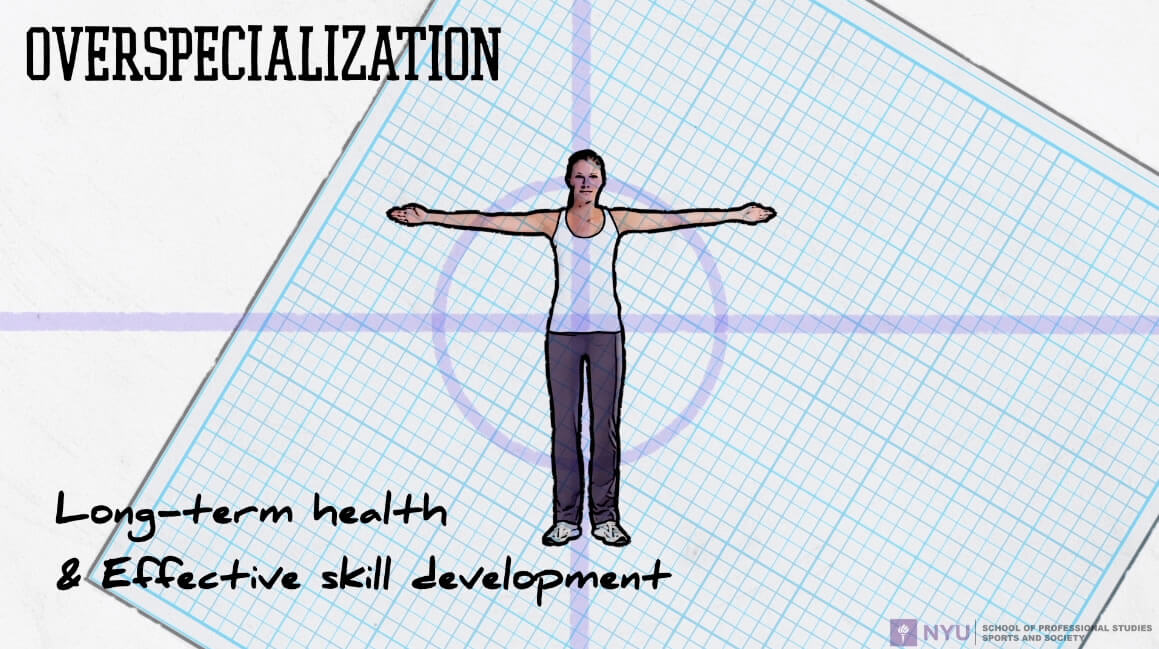Youth Sports Specialization at an Early Age

A young athlete playing a wide variety of sports is truly a great joy to see! The physical, social, and psychological benefits are extraordinary! Young athletes get to work as members of teams and witness the importance of transferrable skills. Most importantly, it’s fun and provides a lifetime of cherished memories!
According to the Aspen Institute’s Project Play, seven out of ten olympic athletes surveyed by the United States Olympic Committee said they grew up as multi-sport athletes. Most called the experiences valuable to their development. As parents and coaches, we should introduce our children to several sports both in a formal and informal manner. Pickup games allow young athletes to use their imaginations and make up their own rules. Also, they are building self-esteem and a lifelong love of physical activities.
In all honesty, this topic shouldn’t even be discussed until a young athlete’s teenage years. A deep commitment to year-round training in a single sport comes with a hefty price. An intense focus could eventually lead to boredom, burnout, injuries, and even a complete disconnect from sports altogether. Parents and coaches need to encourage young athletes that choices are available. They should feel free to explore different types of sports on their own terms.
Engaging in a wide variety of sports provides opportunities to work different muscle groups. Young athletes also experience aerobic and anaerobic activities. Recuperative time between sport seasons can occur as well. There are physical demands in all sports and the body simply needs a break! A healthy body that is well-rested is the perfect blueprint in achieving long-term health and effective skill development.
Common overuse injuries at an early age resemble alphabet soup. Knee and elbow ligaments such as ACL’s, MCL’s, PCL’s, and UCL’s are torn or strained with great regularity. Add stress fractures to the mix and young athletes are more familiar with MRI’s than they are with geometry.
Another important ingredient in developing a healthy young athlete is to encourage them to play both team and individual sports. Besides using and strengthening new muscles, individual sports allow young athletes to become self-reliant and gain confidence in their own abilities. The diversity of sports will allow young athletes to see the world through a different lens.
It’s the forbidden fruit in the Garden of Eden. Active participation in multiple sports enhances a young athlete’s personal development and physical fitness. Besides the enriching life skills that are obtained through playing multiple sports, young athletes are also presented with another extraordinary opportunity. Access to a wide variety of mentors in different sports provides invaluable lessons for everlasting success. Variety is the spice of life and sports allows us to embrace these opportunities!